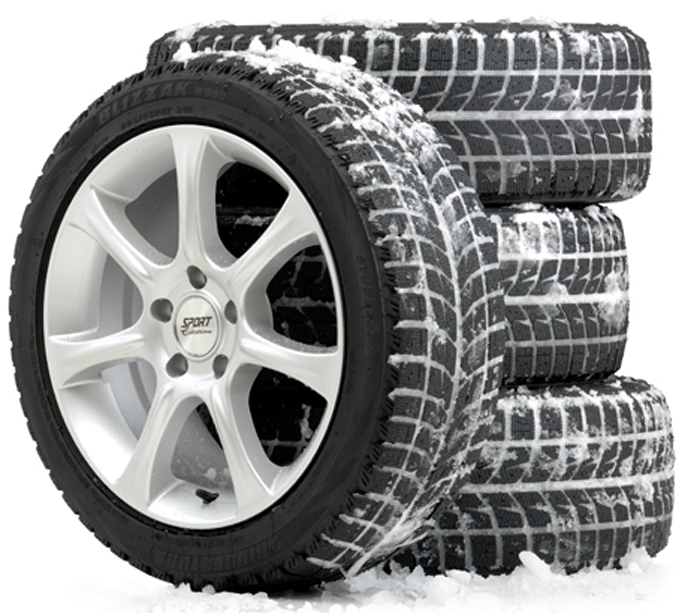Winter tires, also commonly referred to as snow tires, are tires that are specially made for use during cold winter weather. As many people use all-season on their cars, trucks and SUVs, they may feel that they do not need to buy winter tires. While all-season tires do perform decently on slick roads, winter tires perform much better than all-season tires on snow or ice covered roads. In addition, winter tires also perform better than all-season tires on dry pavement during periods of frigid temperatures. Understanding how winter tires differ from all-season tires can help car owners to determine whether or not they need winter tires for their vehicle.
Winter tires use a more open tread design than do all-season tires. The open design helps the winter tires to grab traction in snow and also helps the tire to shed snow and ice that may want to stick in the tread of the tire. Winter driving often means driving through water standing on the road as the snow and ice melts. The open tread of design of winter tires also helps the tires to hold traction while driving through water. In addition, winter tires are designed with nubs built into the tread that are more rigid than the surround tires. These nubs push down into the road when the tire is compressed, helping the winter tire to gain traction on the slickest roads. These nubs work like the metal studs in older styles of winter tires.

In addition to tread design, winter tires have a special finish to help them to gain traction on slick roads. The finish creates a porous surface on the tire. The porous finish helps the surface of the tire to push away water and slush to grip the solid material on the road. Though the pores in the tire’s finish are tiny, they provide winter tires with an added layer of traction on slick winter roads.
All-season tires are made of a durable rubber compound that is meant to be used in a range of temperatures. However, at the coldest temperatures the rubber used in all-season tires becomes hard and inflexible. Conversely, winter tires are designed with softer rubber to perform best in the cold. Winter tires remain flexible at colder temperatures, helping them to grip better than all-season tires in the snow and ice. In addition to gripping snow and ice covered roads better, the softer rubber of winter tires also grips the open road better than all-season tires when the temperatures are cold.
Just as all-season tires are not ideal for use during the winter months, winter tires are not ideal for use during the warmer months. The porous design of winter tires and the softer rubber used in their construction will make winter tires wear more quickly on warm, dry roads than all-season tires. In addition, the wide tread design can create more road noise then traditional tires. In order to preserve winter tires for the colder months when they are most needed, it is best to take off winter tires when spring arrives and store then until they are needed.